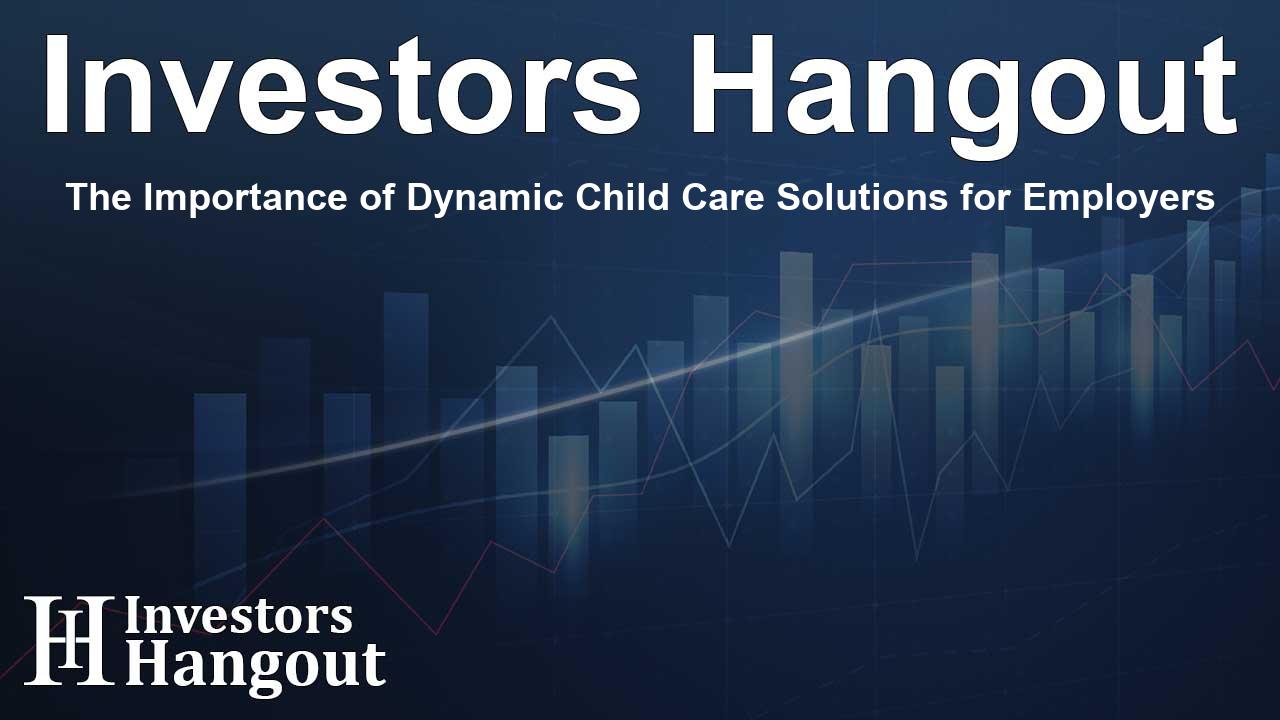The Importance of Dynamic Child Care Solutions for Employers

The Importance of Flexible Child Care Benefits
In today's competitive job market, Fortune 500 companies are increasingly recognizing the necessity of offering flexible, employer-sponsored child care benefits. This vital resource is crucial for attracting and retaining top talent, especially among working parents who seek support as they strive to balance their professional and personal lives.
Recent Findings on Child Care Benefits
A recent survey emphasizes the value that child care benefits bring to organizations. Conducted by The Harris Poll, the 2025 KinderCare CHRO Perspectives Survey highlights the perspectives of human resources leaders from major corporations. Findings reveal that 85% of these leaders believe that offering child care benefits significantly reduces employee turnover. An impressive 86% indicated that such benefits are key in attracting new talent to their organizations.
Impact on Employee Productivity and Mental Health
Moreover, 82% of leaders agree that access to child care enables employees to excel professionally, while 83% reported that these benefits contribute positively to employee mental health. These insights underscore the profound impact that child care offerings can have on the overall workplace environment.
The Need for Customizable Options
As workplace dynamics evolve, with hybrid models and new return-to-office policies, the need for flexible child care solutions becomes increasingly apparent. Jessica Harrah, Chief People Officer at KinderCare, highlights that 84% of HR leaders are experiencing or anticipate a rise in demand for child care solutions from their employees. Furthermore, 82% identify child care as a critical aspect of their return-to-office strategies.
Challenges in Adoption
Despite the clear benefits, many organizations encounter obstacles when trying to provide adequate child care support. Approximately 81% of HR leaders acknowledge that such benefits can enhance employee productivity. However, 78% face challenges in persuading upper management about the long-term return on investment. A lack of awareness among employees about existing child care benefits complicates this matter further.
Addressing Employee Expectations
The survey indicates a disconnect between the priorities of leadership and the expectations of employees. While HR leaders rank child care benefits seventh for competitive advantage, employees place them third, according to KinderCare's findings. This gap recognizes a vital area needing attention from employers to align with the expectations of their workforce.
Accessible Child Care as a Necessity
As Dan Figurski, President of KinderCare for Employers, points out, affordable child care is no longer just a perk; it's a fundamental necessity for working families. KinderCare collaborates with over 700 organizations, creating tailored solutions to meet the distinctive needs of employees. Whether through subsidized tuition, priority enrollment, or on-site centers, they strive to offer solutions that fit within employers' budgets.
Looking Forward: Expanding Child Care Offerings
Looking ahead, 89% of HR leaders intend to enhance their child care benefits in the next five years. This shift indicates a move towards more inclusive, personalized solutions for employees. KinderCare is committed to partnering with organizations to design child care solutions that meet employees' changing needs.
Download the Complete Survey
For those interested in further insights, the complete 2025 KinderCare CHRO Perspectives Survey can be accessed online. This comprehensive report sheds light on the current state of child care offerings and the strategic role they play in the workforce.
About KinderCare Learning Companies
KinderCare Learning Companies is a leading provider dedicated to early childhood education across the country. With nearly 2,500 early learning centers operating in 40 states, KinderCare is committed to building confidence for life in children and supporting families from diverse backgrounds. They work closely with employers to address child care needs by offering a range of solutions, including on-site care, tuition assistance, and backup care options.
Frequently Asked Questions
Why are child care benefits important for employers?
Child care benefits help attract talent, reduce employee turnover, and enhance overall work productivity, making them essential in today's market.
What do employees think about child care benefits?
Employees rank child care benefits as a top priority, emphasizing their necessity for job satisfaction and work-life balance.
How can employers implement effective child care solutions?
Employers can partner with organizations like KinderCare to create flexible solutions tailored to their employees' unique needs.
What challenges do HR leaders face regarding child care benefits?
HR leaders often struggle with budget constraints and demonstrating the long-term ROI to upper management.
What is the future of child care offerings in the workplace?
The future looks promising as many HR leaders plan to expand their child care options, focusing on flexibility and customization to meet employee demands.
About The Author
Contact Olivia Taylor privately here. Or send an email with ATTN: Olivia Taylor as the subject to contact@investorshangout.com.
About Investors Hangout
Investors Hangout is a leading online stock forum for financial discussion and learning, offering a wide range of free tools and resources. It draws in traders of all levels, who exchange market knowledge, investigate trading tactics, and keep an eye on industry developments in real time. Featuring financial articles, stock message boards, quotes, charts, company profiles, and live news updates. Through cooperative learning and a wealth of informational resources, it helps users from novices creating their first portfolios to experts honing their techniques. Join Investors Hangout today: https://investorshangout.com/
The content of this article is based on factual, publicly available information and does not represent legal, financial, or investment advice. Investors Hangout does not offer financial advice, and the author is not a licensed financial advisor. Consult a qualified advisor before making any financial or investment decisions based on this article. This article should not be considered advice to purchase, sell, or hold any securities or other investments. If any of the material provided here is inaccurate, please contact us for corrections.
